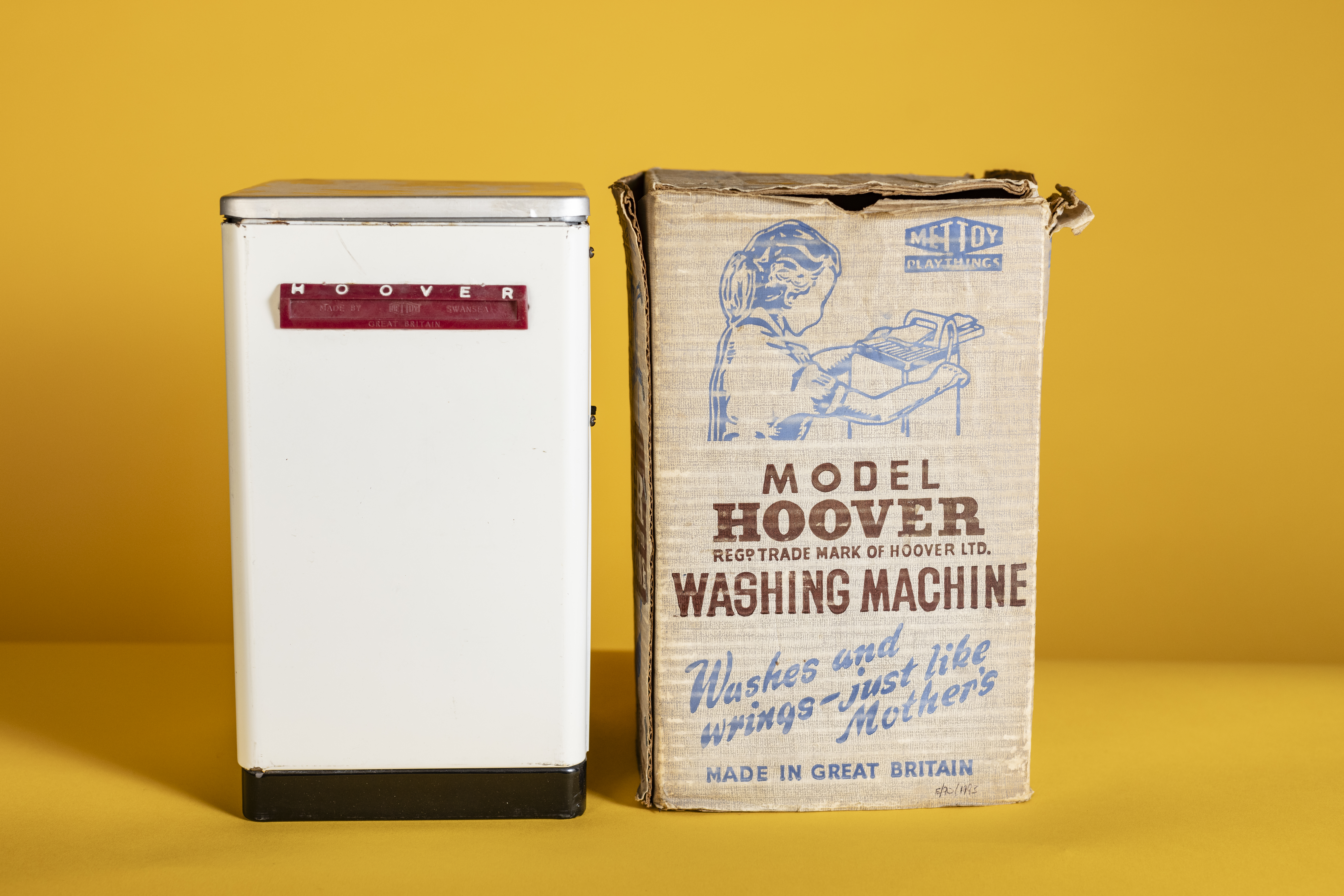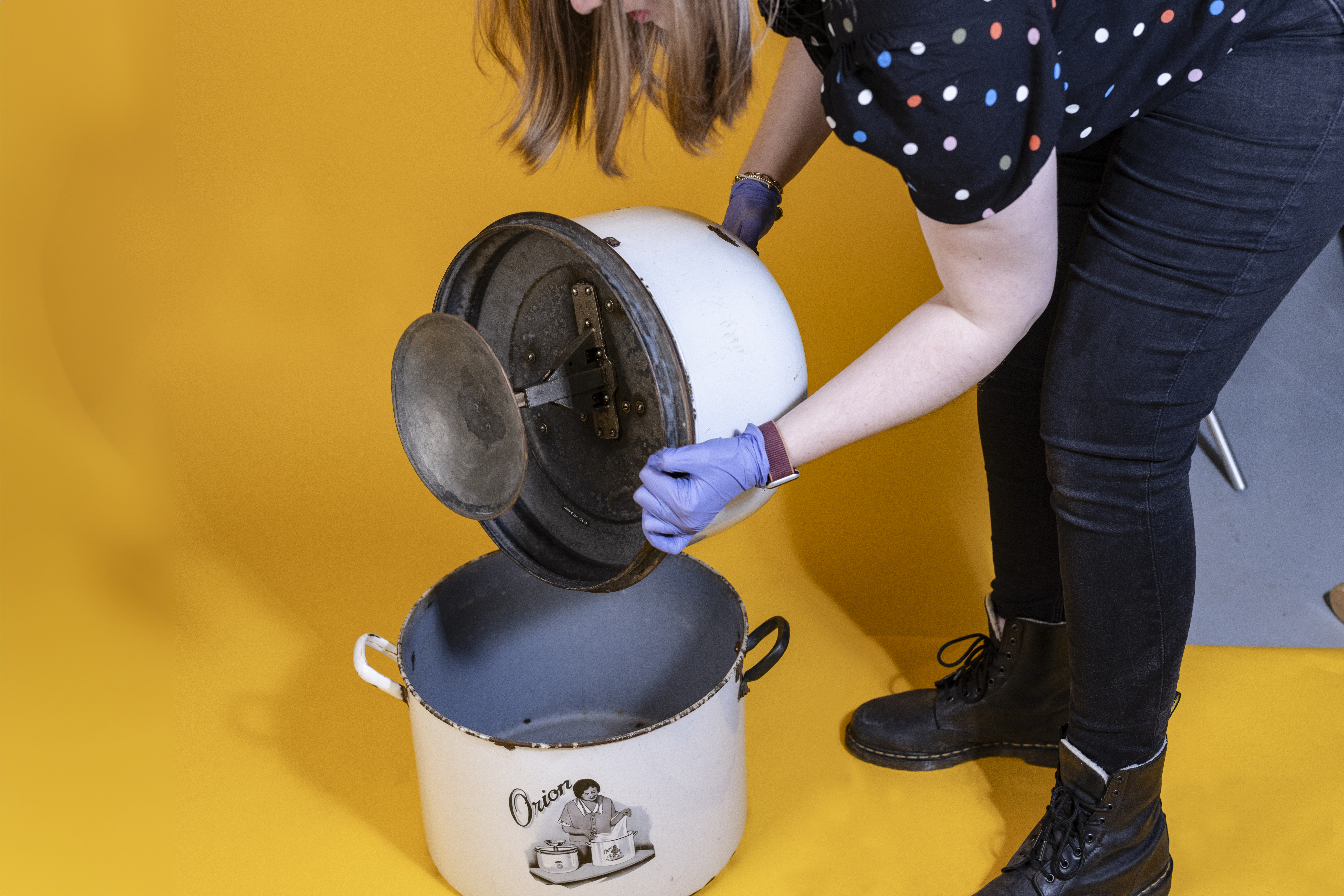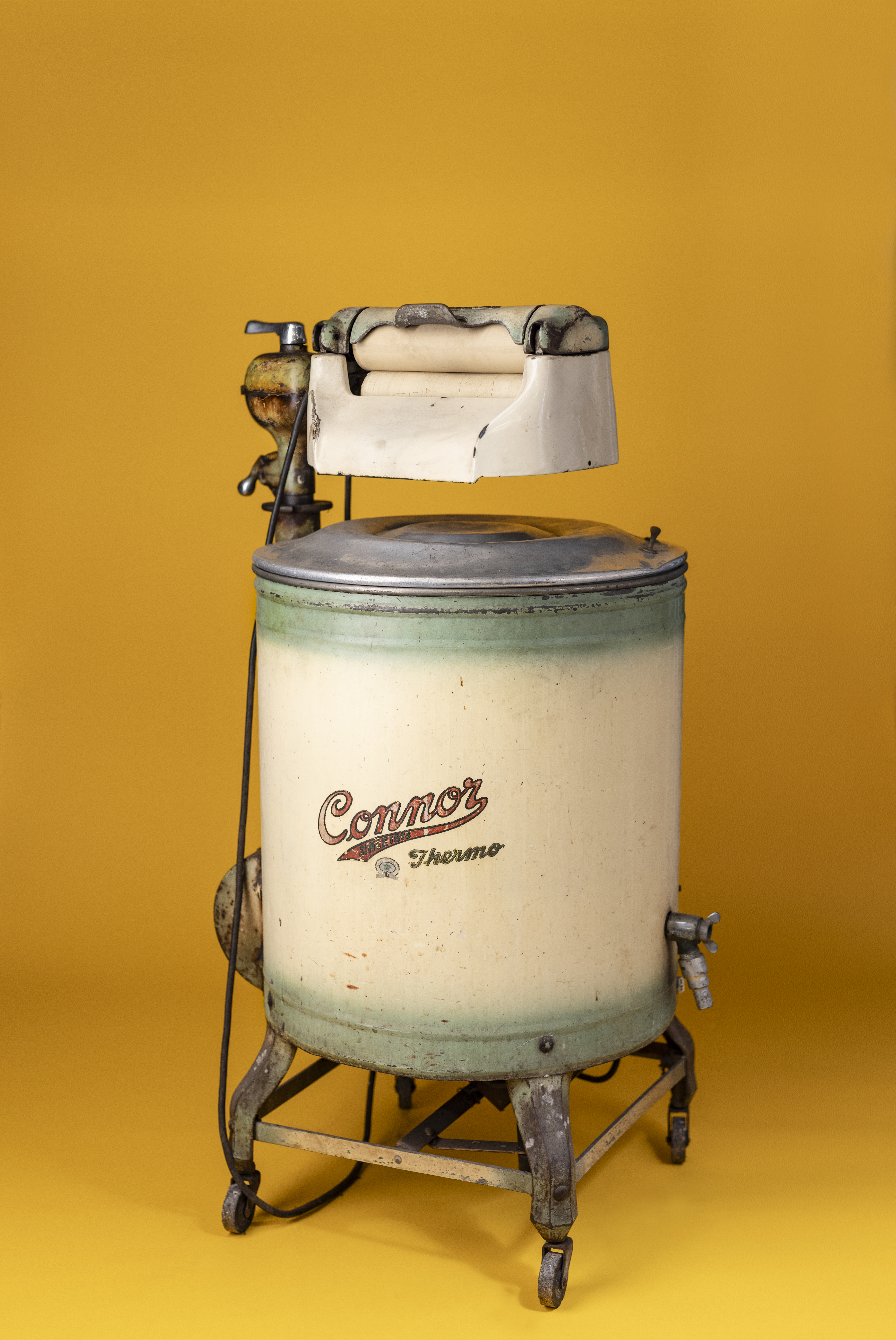In the English language, the word 'power' has multiple meanings. It can be what fuels our energy supply, such as fossil fuels (like oil and coal) or renewables (like wind and solar power). It can also describe muscular strength or the ability for one group of people to exert control over another group.
The design of washing machines and toy washing machines gives an interesting insight into changes in domestic work and in particular the work of women over time.
Women in the home have rarely featured in the histories of energy, technology and industry, and yet the decisions and the work that they did had a huge impact on the change to gas and electricity to fuel the home. By looking at major energy change in the past; who was responsible for making decisions about energy supply in the home, and what was the impact of new technologies, provides a case study and a starting point for discussion and the development of activities and designing products which demonstrate a move towards more sustainable products.
When we explore the idea of power in the histories of washing clothes in the home, we discover hidden histories of the women making every day energy decisions. We can also understand more about why their stories have been forgotten or have remained invisible in the histories of industry, power and energy.
Gender Roles and Expectations in the Past
When we think about the Industrial Revolution, we often learn about the men who were leading the changes in industry and technology. What people have recorded as history has often been the history of power - and history was almost universally ‘his story’.
Since women were mostly barred from power, what they did was rarely recorded.
Professions or roles that provided power or money were often barred to women. Any money they had often went to their husbands on marriage. They had fewer rights in law and were not permitted to vote. Social expectations of women were different too. Their chief role was as wives and mothers.
Until the 1970s most histories were written by and about men. Historians often assumed that the majority of most women's activities had been domestic, unvarying, and uninteresting and were therefore not worth recording or researching. The few female histories which were recorded, were generally of royalty and the aristocracy. Most energy history is still written as a history of men in industry.
In the nineteenth century, however, when gas and electricity, instead of coal, oil and wood, became a possibility to heat, light and power the home, women who were responsible for the majority of domestic tasks in the home were the people making energy decisions every day. This is why their histories matter in the history of energy change.


